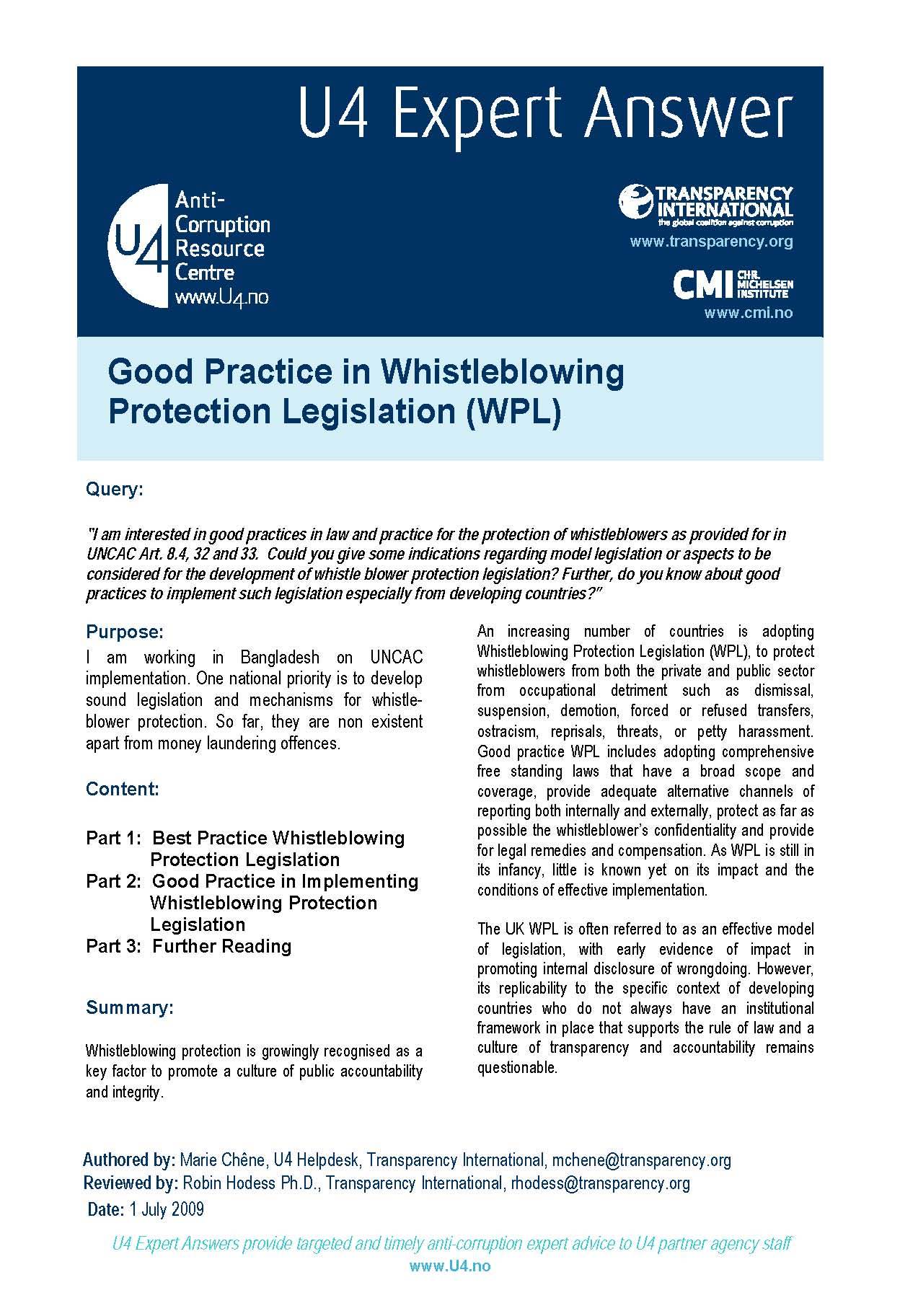Good Practice in Whistle blowing Protection Legislation (WPL)
-
Whistleblowing protection is growingly recognised as a
key factor to promote a culture of public accountability
and integrity.An increasing number of countries is adopting
Whistleblowing Protection Legislation (WPL), to protect
whistleblowers from both the private and public sector
from occupational detriment such as dismissal,
suspension, demotion, forced or refused transfers,
ostracism, reprisals, threats, or petty harassment.
Good practice WPL includes adopting comprehensive
free standing laws that have a broad scope and
coverage, provide adequate alternative channels of
reporting both internally and externally, protect as far as
possible the whistleblower’s confidentiality and provide
for legal remedies and compensation. As WPL is still in
its infancy, little is known yet on its impact and the
conditions of effective implementation.The UK WPL is often referred to as an effective model
of legislation, with early evidence of impact in
promoting internal disclosure of wrongdoing. However,
its replicability to the specific context of developing
countries who do not always have an institutional
framework in place that supports the rule of law and a
culture of transparency and accountability remains
questionable.

